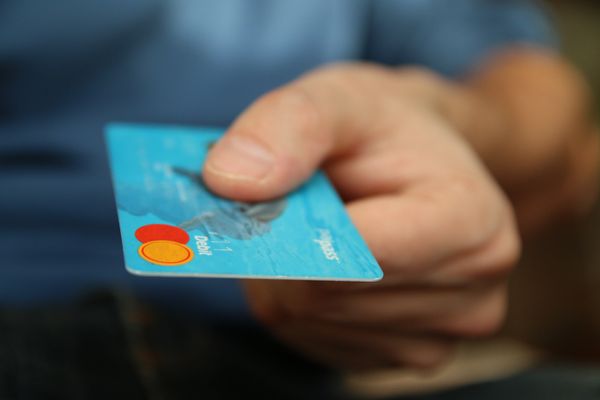Steak, Credit Card Fraud and Online Dating

Mr. Glaser, a resident of Minnesota, said his credit card information was stolen while dining at a local Outback Steakhouse.
"The incident that sticks with me the most was the time I went with my wife to Outback Steakhouse and came back home to notices from my bank questioning some charges," he said.
He said the credit card used to pay for the meal was brand new. He got the new card after the previous one expired, and the restaurant was the only place he had ever used it.
But how was his credit card information stolen? Mr. Glaser recalls the incident as if it were yesterday.
"It was pretty easy to figure out where the breach was -- it had to have been there," he explained. "And it was. The waiter who had been serving us had a card skimmer, and he used it on my card when I sent him with it to pay our tab -something I no longer do."
Unfortunately, the employee had already shared the stolen credit card information with someone else who did not hesitate to make fraudulent charges less than 24 hours after Mr. Glaser got his new card.
Even though the charges were under $100 (around $59.99 each), the perps used his information to create fake dating profiles to further scam other people.
"The charges on my card had been used to make a whole bunch of user profiles on dating sites," Mr. Glaser recalls. "Probably fake ones, I would guess, continuing to scam other people by preying on their need for connection with others. And really, that's the thing I think about the most, that because of my compromised card (which maybe I should have been more protective of), it's possible that a whole bunch of other people lost money or felt violated by the fraud that came out of that—one scam fueling many scams."
Unfortunately, Mr. Glaser did not contact local authorities following the incident, which delayed their arrest. Although he was familiar with card skimmer attacks, it did not cross his mind he could ever become a victim.
When asked what he would advise other users, Mr. Glaser recommends individuals be more protective of personal information. He has become cautious and suggested withdrawing cash when restaurant hopping or going on vacation to avoid similar incidents.
"It's also a good idea to have fraud protection, know what it means, and how to respond to incidents," he added. "Regularly check your card transactions by logging into your account to go over any payments."
Bitdefender Digital Identity Protection (DIP) helps you take control and minimize your digital footprint by continuously monitoring for data breaches that could put your at risk for identity theft and fraud attempts.
You can monitor your digital footprint starting with your e-mail address and phone number. Our tool helps you find your private information online, both in legal and illegal collections of data. You also get instant alerts to new breaches and privacy threats. If you're a regular social media user, DIP will help you detect any social media impersonators that can ruin your online reputation.
Note: The testimonial in the article is part of a series of interviews with Bitdefender Digital Identity Protections customers who had suffered identity theft and hacking incidents. The scope of this report aims to spread awareness of the reality of identity theft and fraud, and the hardships victims face in recovering.
tags
Author
Alina is a history buff passionate about cybersecurity and anything sci-fi, advocating Bitdefender technologies and solutions. She spends most of her time between her two feline friends and traveling.
View all postsRight now Top posts
How to Protect Your WhatsApp from Hackers and Scammers – 8 Key Settings and Best Practices
April 03, 2025
Outpacing Cyberthreats: Bitdefender Together with Scuderia Ferrari HP in 2025
March 12, 2025
Streamjacking Scams On YouTube Leverage CS2 Pro Player Championships to Defraud Gamers
February 20, 2025
How to Identify and Protect Yourself from Gaming Laptop Scams
February 11, 2025
FOLLOW US ON SOCIAL MEDIA
You might also like
Bookmarks







